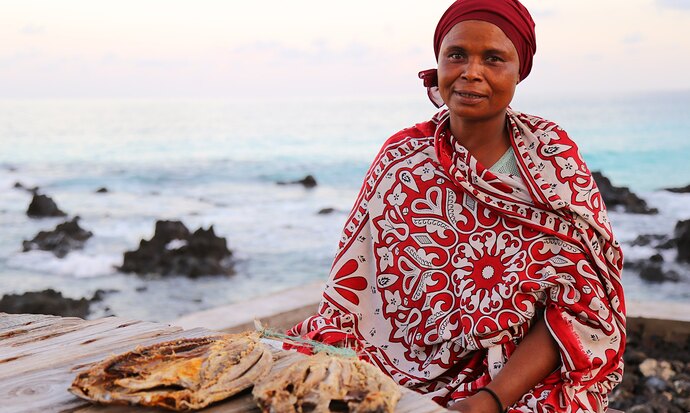1. The Comoros Islands Are Matrilinear
The Comoros Islands—Grande Comore (Ngazidja), Mohéli (Mwali), Anjouan (Ndzuwani), and Mayotte (Maore)—are situated in the western Indian Ocean. Located between the African coast and Madagascar, they serve as stops for sailors traveling the Indian Ocean trade routes. The islands are characterized with a mix of African, Arab, and Persian influences that shaped their culture.
The society of the Comoros Islands is matrilineal, which means inheritance and family lines pass through the mother. Property, like land and homes, is given to daughters or passed from maternal uncles to their nieces and nephews. This keeps wealth within the mother’s family line and gives women control over family resources. Men often live in their wives’ households after marriage, further strengthening the focus on the mother’s family. Maternal uncles, called "malume," play an important role in guiding and mentoring their sisters’ children.
The family structure centers on the mother’s relatives, with grandmothers and aunts holding respected positions and passing down family traditions. Community events, such as weddings and coming-of-age ceremonies, are led by the mother’s family, emphasizing the importance of maternal lineage. Marriages are often arranged to strengthen clan ties, and children are taught to stay loyal to their mother’s family.
Women’s control over property and resources gives them influence within their clans and provides balance to men’s roles in trade and politics. This matrilineal setup also brings stability, as property remains with the maternal family even if men are away for long trade journeys. Stories about powerful ancestral mothers support this system, portraying female ancestors as wise leaders whose strength passes through generations.
Each Comorian island functions as a small sultanate, where local rulers, or sultans, oversee trade, resolve disputes, and maintain peace. Although political authority is held by male sultans, the matrilineal structure strongly influences succession and governance. In many cases, the role of sultan does not pass from father to son but instead to a nephew or another male relative from the sultan’s maternal line, ensuring that power and resources remain within the mother’s family. This system strengthens clan ties and stabilizes leadership by keeping authority tied to the maternal line.
Sultans also work with councils of elders, who are often prominent men from influential maternal lineages, to address community issues, resolve conflicts, and uphold local traditions. While men hold the formal positions of power, women indirectly shape political dynamics through their control of family wealth. The resources held by women, especially in the maternal line, often support the sultan’s activities and alliances. Important social events, particularly marriages, are arranged by the mother’s family, reinforcing the strength of maternal lines in the political framework.
